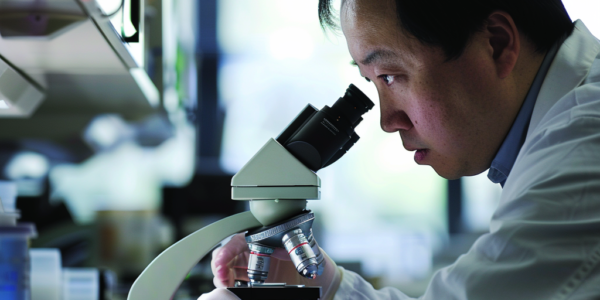Revolutionary Prenatal Gene Editing Method Shows Promise for Neurodevelopmental Disorders
Researchers from UC Davis and UC Berkeley have developed a groundbreaking method for prenatal gene editing using acid-degradable nanoparticles. This innovative technique targets neurodevelopmental disorders by delivering mRNA into embryonic brain cells, achieving significant genetic modifications with low toxicity. Published on October 28, 2024, the study highlights a promising approach to treat genetic disorders before birth, potentially revolutionizing therapies for conditions like Angelman syndrome and Rett syndrome.
Breakthrough in Gene Editing: Targeted In Vivo Treatments Show Promise for Genetic Disorders
Recent advancements in gene-editing therapies are revolutionizing treatment for genetic disorders. Researchers at UT Southwestern have developed lipid nanoparticles for in vivo gene editing, showing promising results in correcting mutations linked to cystic fibrosis. This innovative approach could lead to one-time treatments that eliminate the need for complex procedures, offering hope for various genetic conditions.
Navigating Privacy and Breakthroughs in Multiple Sclerosis Research
In today’s digital age, understanding privacy choices is crucial as users navigate online platforms. Essential cookies ensure basic functionality, while optional cookies enhance user experience but may involve data sharing with third parties. Recent research in regenerative medicine highlights a groundbreaking study on CRISPR-edited cells that could improve remyelination in Multiple Sclerosis, offering hope for new treatments. Stay informed about your online privacy and the latest scientific advancements.
AI and Genetic Engineering: Pioneering the Future of Bespoke Proteins for Environmental Solutions
Recent advancements in artificial intelligence and genetic engineering are revolutionizing biotechnology, enabling the creation of bespoke proteins that could tackle environmental challenges like climate change and plastic waste. With AI’s ability to predict protein structures and gene editing technologies like CRISPR, researchers can design proteins for targeted applications in agriculture and medicine, paving the way for innovative solutions. However, ethical considerations surrounding these technologies remain crucial as we explore their vast potential.
Stanford’s CRISPRkit Revolutionizes Science Education with Affordable Gene-Editing Experiments
The newly launched CRISPRkit from Stanford University is revolutionizing science education by providing affordable gene-editing experiments for classrooms. Priced at just $2 per kit, this innovative tool allows students to engage in hands-on learning about CRISPR technology, bridging the gap between theory and practice. With its potential to democratize access to advanced biology, CRISPRkit empowers the next generation of scientists and fosters inclusivity in STEM education.
Experimental Gene Therapy Restores Vision in Patients with Inherited Blindness
An experimental gene therapy has shown promising results in restoring vision for patients with inherited blindness. College student Olivia Cook underwent a CRISPR-based gene-editing treatment that significantly improved her vision, providing hope for advancements in science and vision restoration. Despite being experimental, the therapy offers hope for treating inherited retinal disorders and combating blindness worldwide.
CRISPR Technology: Revolutionizing Medicine and Healthcare
The approval of the world’s first CRISPR therapy to treat sickle cell disease and beta-thalassemia patients signifies a significant milestone in the field of gene editing. CRISPR technology has potential applications in targeting and treating various types of cancer, combating AIDS, addressing cystic fibrosis, muscular dystrophy, Huntington’s disease, blood disorders, and even COVID-19. As CRISPR technology continues to advance, its potential applications in medicine and healthcare are expanding, offering new avenues for personalized medicine.
Chinese Scientist He Jiankui Resumes Genome Editing Research
Controversial scientist He Jiankui, known for creating genetically edited babies, has returned to his lab to focus on Alzheimer’s and genetic disease research. Despite backlash and legal consequences, he plans to resume human embryo genome editing within regulations. His actions have sparked global condemnation and reignited debates about the ethical boundaries of gene editing.
MIT scientists develop rapid gene-editing screen to identify cancer mutations
MIT scientists have developed a rapid gene-editing screen using prime editing to identify the effects of cancer mutations. This new technique aims to revolutionize the identification of mutations that could be targeted with new cancer therapies, potentially leading to personalized cancer treatments and more effective therapies in the future.
Advancements in In Vivo Gene Editing for CRISPR-Based Therapies
Explore the latest advancements in CRISPR gene editing technology, including in vivo delivery of gene-editing therapies and improved manufacturing to reduce the cost of treatments. Learn about the innovative methods being developed by Nobel Laureate Jennifer Doudna and her team at the Innovative Genomics Institute to target specific cells within the body for more accessible and affordable CRISPR-based therapies.










